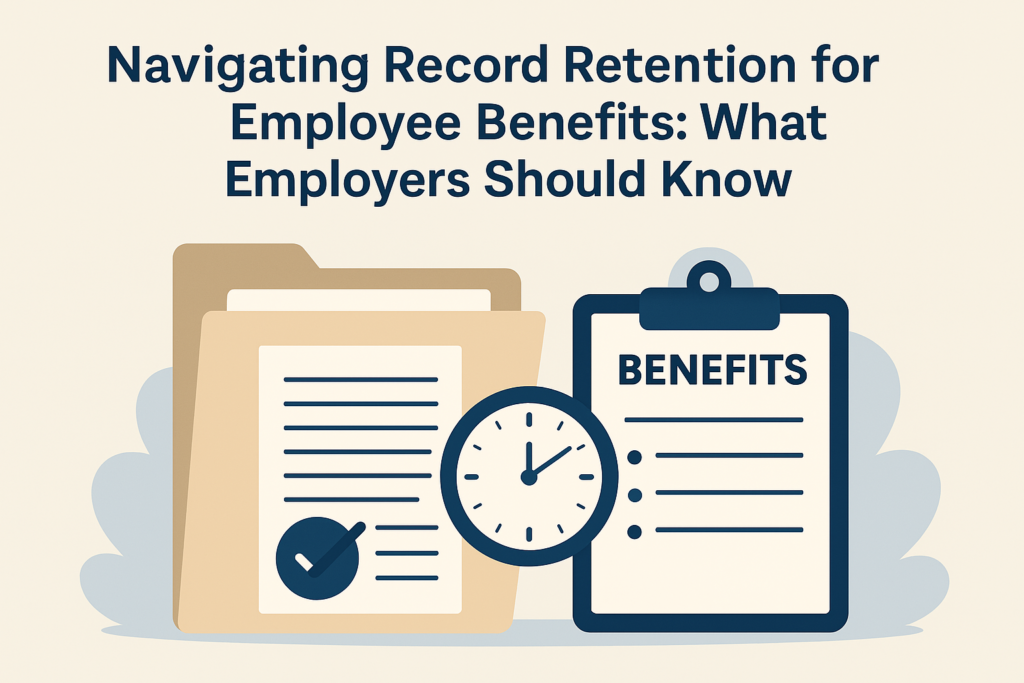📂 Why Record Retention Matters
Employee benefit records are more than just paperwork — they provide a trail of documentation that supports compliance with federal, state, and even internal requirements. These records may include things like:
-
Plan documents and amendments
-
Enrollment and claims forms
-
Communication with employees about benefits
-
Payroll records and contribution logs
Proper retention helps protect both employers and employees, especially when questions or disputes arise later on.
⏳ How Long Should You Keep Records?
There’s no universal rule, but several general guidelines can help:
-
Federal Regulations: Laws such as ERISA (Employee Retirement Income Security Act) often require employers to retain certain benefit records for at least six years.
-
Tax Documentation: The IRS generally expects employment-related tax records to be retained for four years.
-
State Laws: Retention rules vary by state, and some may require employers to keep documents longer than federal guidelines.
When in doubt, it’s often best to err on the side of caution and keep records for a few extra years.
🛠 Best Practices for Managing Benefit Records
Implementing a thoughtful records management strategy is key. Consider the following tips:
-
Create a Written Policy: Establish a clear, documented record retention policy that covers what to keep, how long to keep it, and how to securely dispose of outdated records.
-
Use Secure Systems: Whether you store records physically or digitally, make sure they’re secure, accessible to authorized personnel only, and backed up when necessary.
-
Audit Regularly: Schedule regular reviews to ensure compliance and eliminate unnecessary records that could clutter your systems or pose a data security risk.
-
Stay Informed: Laws and regulations evolve, so make sure someone in your organization is responsible for staying up to date on recordkeeping requirements.
✅ Final Thoughts
Record retention may not be the most exciting part of managing employee benefits, but it’s a crucial one. A proactive approach not only keeps you compliant — but also builds trust and transparency with your team. Think of it as one more way to strengthen the foundation of your employee benefits program.


